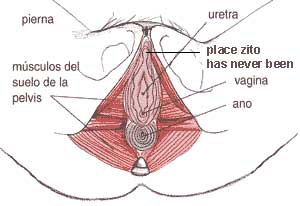Advertising is notorious for telling women that their bodies are unclean and that they would benefit from a myriad of personal and feminine hygiene products. This isn't just a recent trend. Advertisers in the 1950s told women they would have better marriages if they douched with Lysol, a practice that we now know is dangerous. The truth of the matter is that feminine personal hygiene products are almost always unnecessary and cause more harm than good. You vagina needs nothing more than the very basics of care.
Cleansing tips
Believe it or not, your natural discharge and oils are an important form of protection against infections, according to the University of Iowa. The vagina produces its own natural discharges as part of it self-cleaning process. Excessive washing, douching, or using harsh cleaners and soaps strip away this protective barrier, leaving you more vulnerable to infections that cause odor and discomfort. Rinse your external genitals with warm water and use only a mild soap if necessary. Never attempt to clean inside the vagina.
Odor tips
The University of Iowa also points out that women each have their own natural smell. This smell is healthy and a natural part of a woman's body. Feminine sprays, deodorants and perfumes cover up the scent but can't make it go away. This natural scent is usually not detectable to others through your clothes. If you have an abnormally strong or fishy scent, it is most likely a sign that you have an infection like bacterial vaginosis. If this is the case, only antibiotics will clear up the problem.
Menstrual care tips
Women's bodies are programmed to care for menstrual needs on their own--this includes cleaning the reproductive tract after menstruation. Many women feel unclean during or after menstruation and turn to douches for cleaning.
Douching, according to Barbra Williams Cosentino, RN, CSW in her article "To Douche or Not to Douche", forces bacteria and debris up into the reproductive tract, which can lead to a painful condition called pelvic inflammatory disease.
Other products used during menstruation can also cause irritation that leads to infection, such as scented pads and tampons. It's always best to use unscented products and to only use them when needed. For example, only use panty liners when you're spotting, not every day of your cycle.
Clothing tips
Because the vagina produces its own cleaning and self-care secretions, it's a naturally moist environment. The clothing you wear should allow air flow so that these secretions can evaporate. When there's no air flow to the vagina, bacteria and fungi can collect and grow in the moist, dark folds. This is a common cause of vaginal yeast infections. Wear cotton underpants or underpants with cotton crotch linings. Avoid wearing wet bathing suits, leather pants or tight spandex for extended periods of time. Change clothes after working out or participating in strenuous activities that cause you to sweat a lot.
Health News of Friday, 11 November 2011
Source: ivestrong.com

















